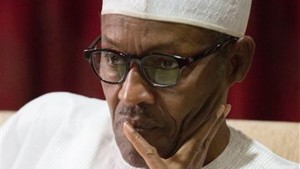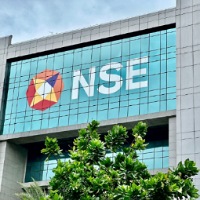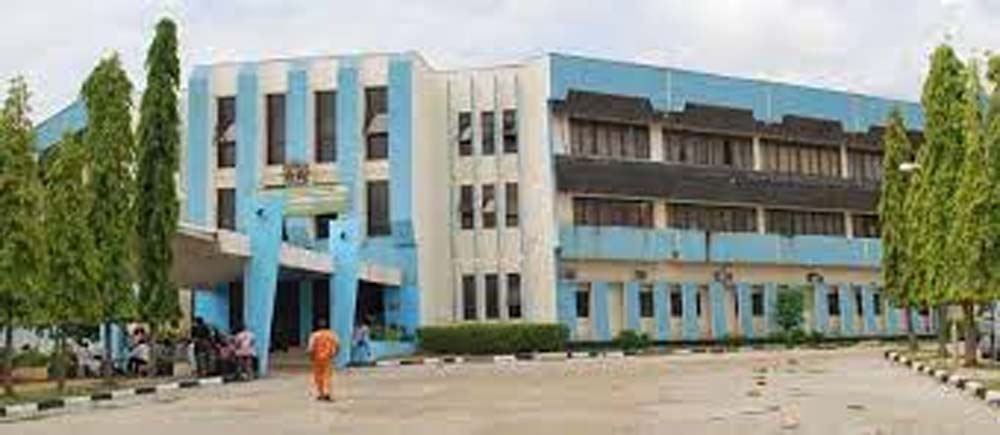Finance
Stock market lost N1.732tn in one year under Buhari

Gbenga KOSOKO
LAGOS-THE Nigerian stock market crashed by N1.732tn within one year of the Muhammadu Buhari-led Federal Government.
The Nigerian Stock Exchange data showed that the NSE market capitalisation on May 28, 2015 was N11.658tn, while that of May 27, 2016 was N9.926tn.
Market capitalisation is the total market value of the shares outstanding of a publicly traded company.
The NSE All-Share Index also crashed to 28,902.25 basis points from 34,310.37 basis points.
Investors in the country’s capital market (equity category) lost over N1.053tn in the first quarter of 2016.
During the first three months this year, the equities market depreciated by 10.79 per cent.
As of the first day of trading this year (January 4), the NSE market capitalisation stood at N9.757tn, while the All-Share Index was 28,370.32 basis points.
But as of the last day of trading in 2016 Q1 (March 31), the market capitalisation and All-Share Index crashed to N8.704tn and 25,306.22 basis points, respectively.
Equity investors in the country’s capital market had, in the first seven trading days on the floor of the NSE in 2016, lost N804tn of their investment’s worth. Market capitalisation after the close of trading on the floor of the Exchange on the first seven days closed at N8.953tn.
The All-Share Index also dropped from 28,370.32 basis points recoded on the first day of trading in 2016 to 26,034.94 on the seventh trading day of this year.
The downward trend in the Nigerian stock market, weeks into 2016, did not show any sign of abating as the market capitalisation continued to fall, with 10 out of the 12 indices of the NSE recording negative stance 10 weeks into 2016.
The market capitalisation of the NSE fell by N811bn in the first 10 weeks of trading this year.
The NSE market capitalisation dropped from N9.75tn on January 4, 2016 to N8.939tn 10 weeks into the year, while the All-Share Index also closed at 25,988.40 basis points from the 28,643.67 basis points recorded on the first trading day of the year.
Investors had also made huge losses in the Nigerian equities market last year as the market capitalisation (equities only) of the NSE shed a total of N2.354tn between December 2014 and December 2015.
The President, Nigerian Stock Exchange, Mr. Aigboje Aig-Imoukhuede, last week, said the country’s capital market could not continue to lag behind in the global arena, adding that it needed to strategise for growth to better the economy.
He said the capital market must facilitate capital raising for economic growth as well as mobilise savings for investment.
Aig-Imoukhuede said part of the strategies was a broad consensus on sectorial priorities for growth, which should feed into policy formation.
He advocated for incentives for priority economic sectors like Information and Communications Technology, while pushing for non-listed national champions to be listed on the NSE for others to follow.
He said, “Nigeria is facing a huge growth challenge. Nigeria, indeed, has a big challenge in terms of growth. Employment rate must grow owing to the fact that the population is also growing very fast. Growth is difficult to realise; so, government must stimulate growth.
“Nigeria is only exaggerating the impacts of falling oil prices now. This is because with a robust financial market the economy can be sustained. The financial market must be encouraged.”
He described the Nigerian financial market as a ‘high-risked’ market, saying the situation was capable of attracting limited investors who could ultimately stop at nothing to maximise returns.
An analyst at WSTC Financial Services Limited, Mr. Tola Oni, said in the last one year, the efficiency of the country’s economy had been constrained by policies – monetary and fiscal.
He noted that the country had not been able to chart the right path in the past one year, saying some actions by the Federal Government in recent times had shown a rethink especially in the partial deregulation of the petroleum downstream sub-sector and the flexible foreign exchange market.
“Our concern is that this flexibility must mean flexibility in the whole sense of it. We’ve seen the capital market make progress recently owing to these. Any attempt by the government to interfere again could drag us back significantly,” he added.
The President, Constance Shareholders Association of Nigeria, Mr. Shehu Mikail, said the happenings in the stock market in the past one year were a reflection of the country’s economic stance, which is very hostile policy-wise
He said the country had been plagued with serious economic and financial challenges, which had resulted in activities being slowed down especially in the financial sphere, which included the NSE.
Mikail added, “The prices can be better if things turn around economically. The 2016 budget had been passed and the implication of the passage would start filtering into the economy in due course. With the recent forex flexibility, we expect the game to change.
To this end, the NSE Chief Executive Officer, Mr. Oscar Onyema, while commenting on the state of the market, had said, “Among emerging markets, recession has materialised in Brazil and Russia, and the trend is likely to continue amid weakening oil and other commodity prices. The Nigerian stock market had already lost $30bn since July 2014.
“In the sub-Saharan Africa, while the recent performance of Nigeria and South Africa, has been lackluster, the overall region has weathered the commodity slump better than Latin America and elsewhere, with growth slated at 4.3 per cent in 2016, up from 3.8 per cent in 2015.”
-PUNCH
Banking
CBN Denies Currency Devaluation

The Central Bank of Nigeria (CBN) has refuted claims of devaluing the.
Earlier reports suggested that the CBN had devalued the Naira, lowering its exchange rate from N631 to the dollar, compared to the previous day’s rate of N461.60 at the Importers and Exporters (I&E) window.
However, the Central Bank of Nigeria (CBN) released a statement on Thursday through its Acting Head of Corporate Communications, Dr. Isa Abdulmumin, categorizing the report as false information.
In the statement titled ‘CBN Has Not Devalued The Naira’, he said the attention of the apex bank was drawn to the news report by an Abuja based newspaper edition of June 1, 2023, titled “CB Devalues Naira To 630/51”.
However, the CBN stated categorically that the news report was replete with outright FALSEHOODS and destabilizing innuendos, ‘reflecting potentially willful ignorance of the said medium as to the workings of the Nigerian Foreign Exchange Market.’
“For the avoidance of doubt, the exchange rate at the Investors’ & Exporters (I&E) window traded this morning (June 1, 2023) at N465/USS1 and has been stable around this rate for a while.
“The public is hereby advised to ignore the news report by Daily Trust in its entirety, as it is speculative and calculated at causing panic in the market,” the CBN spokesman added.
He, therefore, advised media practitioners to verify their facts from the Central Bank of Nigeria before publishing in order not to misinform the public.
Banking
BREAKING: CBN Increases Interest Rate By 0.5%

The interest rate in Nigeria has been raised to 18.5 percent, up by 0.5 percent, from 18 percent where it was pegged in March 2023.
The Central Banks of Nigeria’s (CBN) Monetary Policy Committee (MPC) resolved to this effect at its third meeting of 2023 in Abuja, on Wednesday.
Governor, CBN, Godwin Emefiele, made the disclosure in the communiqué of the MPC’s meeting, thereafter.
While engaging the media at the end of the two-day meeting, Emefiele, said the committee voted to keep the asymmetric corridor at +100 and -700 basis points around the MPR.
In the view of the MPC, rising inflation rate is traceable to the high energy cost and challenges around the supply chain, among others, which lie outside the corridors of the CBN.
Emefiele said, “The current trend in price development would continue to be monitored by the bank with greater collaboration with fiscal authority to address the drivers of inflation.”
Biztellers reports that the CBN had effected six consecutive interest rate increases, which has seen the rate move from 11.5 percent in March 2022 to 18.5 percent in May 2023.
Finance
Dangers Lurk As Nigerians Resort To Refurbished Gas Cylinders

In Nigeria, people have been forced to come up with creative solutions to cope with the effects of inflation and the economic crisis.
These improvised strategies have not only helped individuals save money, but also enabled them to stay afloat during difficult times.
In a concerning development, the recent trend of boycotting the high cost of cooking gas cylinders in Nigeria may pose a greater risk to lives than it does in terms of saving money.
Economy&Lifestyle investigations have revealed that the soaring prices of gas cylinders have reached a point where it has become increasingly challenging for average households to afford them, let alone refill them with gas.
The situation is further exacerbated by the fact that the pump price of kerosene, which would typically serve as an alternative, has become prohibitively expensive.
Upon investigation, it was found that the prices of gas cylinders vary depending on their sizes. A 3kg gas cylinder is priced at N14,000, while a 5kg cylinder costs N16,000. The larger cylinders are even more costly, with a 6kg cylinder priced at N17,000 and a 12.5kg cylinder costing N19,000.
Additionally, the expense continues when it comes to filling these cylinders with cooking gas, as it costs N2,600 for a 3kg cylinder, N5,200 for a 6kg cylinder, N8,950 for a 10.5kg cylinder, and N10,650 for a 12.5kg cylinder.
Consequently, an average household that needs to replace a worn-out 5kg cylinder would have to come up with N20,250 to purchase a new cylinder and fill it with gas, which can be a difficult feat to achieve.
As a result, many people have resorted to refurbishing their old cylinders and trying to use them as best as they can. However, this approach poses a significant danger.
Mrs. Rukayat Adesoji, a trader, shared her experience regarding her gas cylinder, which had become rusted and could no longer stand upright since last month. Due to the exorbitant prices of purchasing new cylinders, she resorted to seeking the assistance of a welder.
The welder patched the legs of the cylinder, repainted it, and ever since then, she has been using the refurbished cylinder for her cooking needs.
She said ““My gas cylinder which was 6kg got rusted and no longer stands erect since last month. When I asked for the price, I was told it was N17, 500. I was discussing it with a friend who advised me to take it to a welder to paint it and construct a new stand. I heeded to her advice and at the end spent just N3, 000 to turn my cooking gas to a brand new.”
Apart from refurbishing cylinders, some people don’t even know when their cylinders will expire. Mrs. Mercy Opara, a hair stylist, falls in that category as she explained: “I am taking my gas cylinder to the welder to spray it for me. It just cost N1, 500.
“The cost of buying a new cylinder is high. I have been using my cylinder for over 7 years and I don’t even know the expiry date. I just pray God blesses me so that I can buy a new one. But this one I am managing will look neat after spraying it for another two years.”
Mr. Adekanbi Joseph, a wielder, said he paints cylinder and “To paint and rebuild a cylinder stand, I charge N4, 500. Many people come here to paint as a new cylinder is now very expensive to get.”
Highlighting the potential dangers of using refurbished cylinders, Mr. Benjamin Hope, the Chief Executive Officer of FKT Cooking gas and general goods, emphasized the risks involved.
He stated that even a brand new cylinder can pose a risk of explosion if the locks are not properly secured after use or if the cylinder filled with gas is moved from one location to another.
He said “A brand new cylinder can explode if the locks are not well keyed after using and if the cylinder filled with gas was moved from one place.
“There are many reasons for the high cost of gas cylinders in Nigeria. One is the cost of importation due to the exchange rate. Another is the increased migration from the use of kerosene to cooking gas which has necessitated increased demand for gas cylinders. You know that in such a case there will be increased importation of cylinders.”he added






















